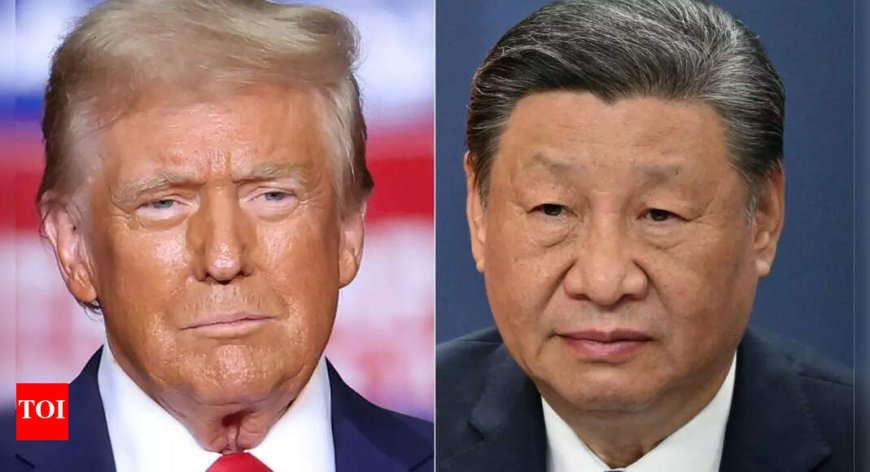'So much for being nice guy': Donald Trump reignites trade tensions, warns China it has violated tariff deal
'So much for being nice guy': Donald Trump reignites trade tensions, warns China it has violated tariff deal

'So much for being nice guy': Donald Trump reignites trade tensions, warns China it has violated tariff deal
Breaking News, Daily Updates & Exclusive Stories - theoddnaari
In a surprising move that has sent ripples across global markets, former U.S. President Donald Trump has reignited trade tensions with China, notably warning that the Asian economic powerhouse has violated the terms of their existing tariff agreement. This escalates what was already a contentious economic relationship between the two nations, raising concerns over future trade policies and economic stability.
Background of the Trade Deal
Trump's latest remarks follow a cooling-off period after intense negotiations during his presidency, which aimed to address the significant trade deficit between the U.S. and China. The 2019 deal was designed to enhance agricultural exports from the U.S. to China, while China committed to increasing purchases of American goods—an agreement balanced on the knife-edge of diplomacy and economic needs. However, recent actions by China appear to contradict this treaty, according to Trump's statements.
Trump's Warning and Its Implications
The former president stated, “So much for being the nice guy,” in a clear indication of his frustration regarding China's perceived lack of compliance with the tariff deal. His words signal that he may re-enter the political landscape focused on foreign affairs, especially trade issues that resonate with many American workers worried about job security. Trump's statements have been met with mixed reactions from economists and political analysts. Some argue that further escalating tensions could lead to retaliatory measures from China, which often responds to perceived slights with trade barriers or tariffs of its own.
The Economic Impact
Experts predict that a resurrection of trade tensions could jeopardize the fragile recovery post-COVID-19, affecting various sectors reliant on smooth trade relations, including technology, agriculture, and manufacturing. As Trump continues making headlines, financial analysts are already turning their focus toward the stock market's vulnerability to changes in trade policy and relations with China.
Public Reaction and Political Landscape
Responses from both average citizens and political pundits have been swift. Many supporters of Trump agree with his tough stance on China, viewing it as a necessary means to protect American jobs and industries. Conversely, others criticize this re-escalation, citing the importance of maintaining diplomatic ties for long-term economic health. Observers of U.S.-China relations caution that returning to a cycle of blame could dismantle years of progress made in negotiations and agreements.
A Call for Diplomacy?
As Trump’s rhetoric heats up, some analysts are calling for a return to constructive dialogue to resolve misunderstandings and promote collaboration on shared global issues such as climate change, public health, and economic recovery from the pandemic. Diplomacy could offer a pathway to stabilize the relationship instead of amplifying tensions that could leave both nations in economically precarious positions.
Conclusion
Trump's recent declarations surrounding U.S.-China trade relations mark a noteworthy moment in political discourse and economic policy. With his warning to China clear, the future of trade agreements could hinge on the next steps taken by both sides. As the world watches, it remains crucial for leaders to prioritize effective communication and diplomatic solutions in an era of rising economic nationalism.
For more updates, visit theoddnaari.







